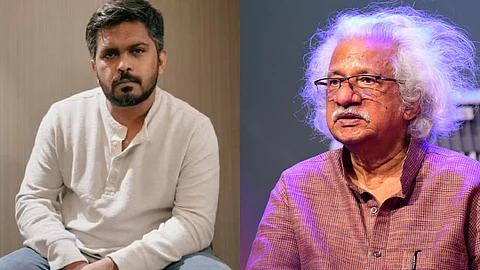

Following Dr Biju and Shruthi Sharanyam, independent filmmaker Don Palathara has weighed in on the ongoing row surrounding veteran director Adoor Gopalakrishnan’s recent remarks about state-funded filmmaking schemes for Scheduled Caste (SC), Scheduled Tribe (ST), and women filmmakers. Responding to Malayalam film commentator Roby Kurian, who described the backlash against Adoor as “manufactured outrage,” Don challenged that view and raised concerns about power, access and the bureaucratic handling of such grants.
Roby, in his Facebook post, argued that Adoor’s comments were not identity-based but about the responsible use of public money. “He didn’t say that people from a particular caste or gender need training because of their identity… What Adoor said was that money from the government must be spent responsibly,” he wrote. Roby also questioned whether inclusivity should be prioritised in a film industry where, in his opinion, identity and diversity are rarely considered relevant.
Don, best known for helming films such as Shavam, 1956, Central Travancore, Santhoshathinte Onnam Rahasyam and Family, replied directly to Roby's post. He began by pointing out that Adoor’s own films have not necessarily been widely watched or commercially successful. “It’s not as if Adoor Sir himself has made films that were widely watched or commercially successful!” he said. Don added on training, saying that while he personally chose to attend film school, others view cinema as a medium open to all, including those without formal education. “I also know people who believe that film is the language of the illiterate, and I respect that view too,” he noted.
Don's main criticism centred on the implications of demanding training after filmmakers have already been selected through a government process. “The real issue arises when someone in a position of power decides that those who have already been selected for a government scheme need training. That is where the problem lies, in the way selection, training, and delivery are arranged and misaligned,” he wrote. Don also referred to recent statements by Minister for Cultural Affairs Saji Cherian, who defended the government initiative and expressed confidence in the quality of the selected projects. “If this is a government grant, and the government is confident that the chosen filmmakers are talented, then the recipients should be allowed to make the films in the way they choose,” Don wrote.
Don concluded by urging the government to streamline the process and reduce interference once a grant is approved. “What is immediately needed is to free them from the bureaucratic hurdles, especially once the grant has already been sanctioned. They are already facing enough challenges in the way the grant process itself is handled.”